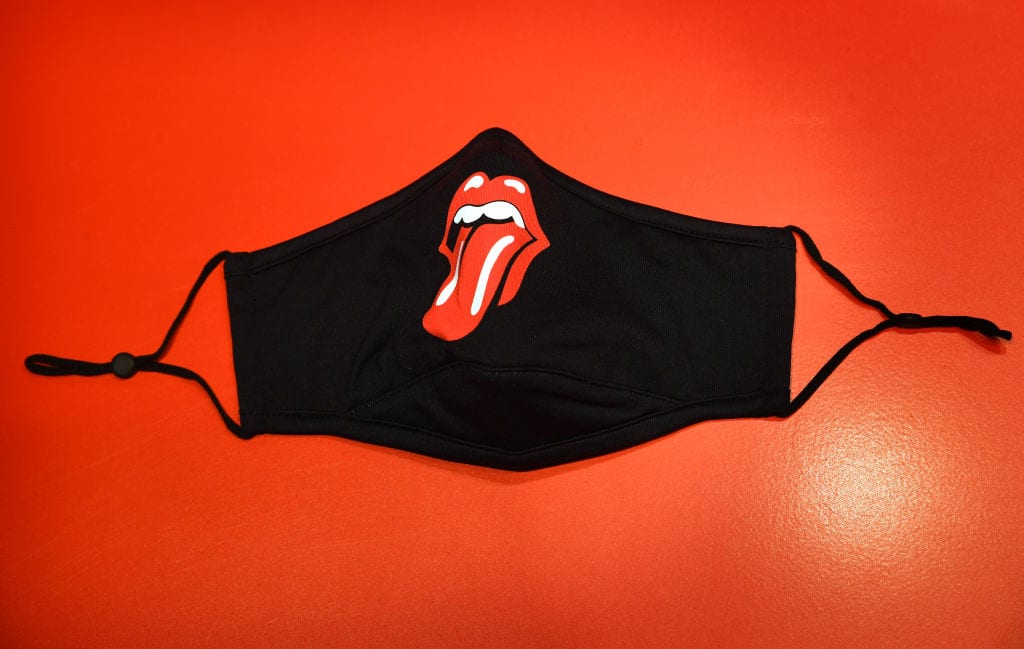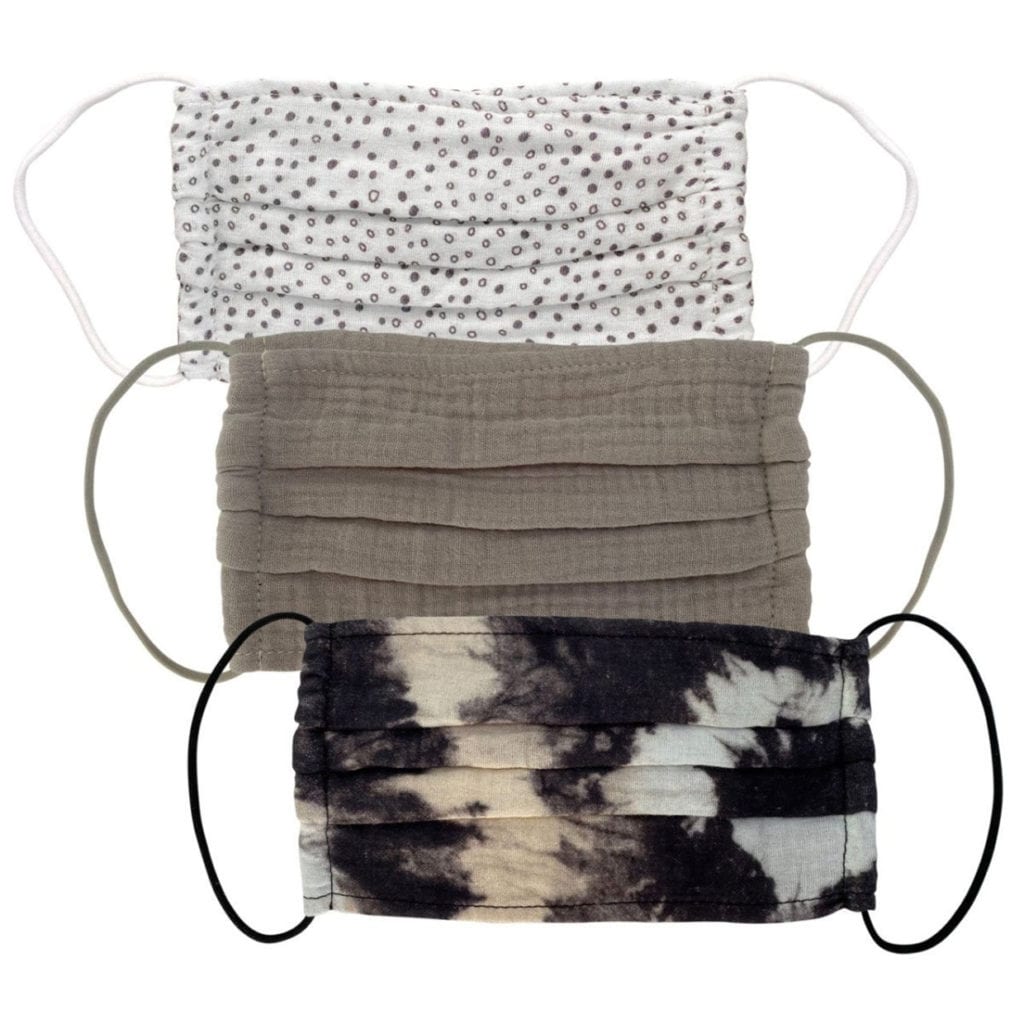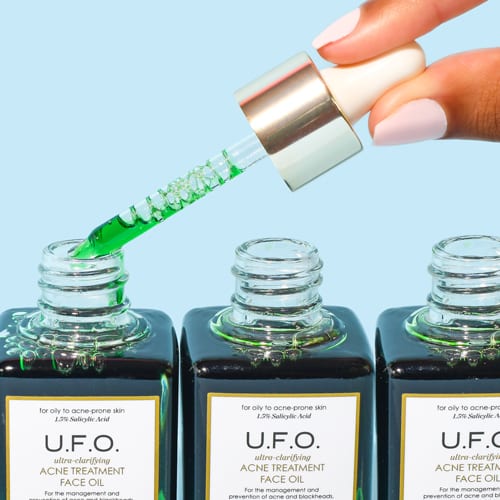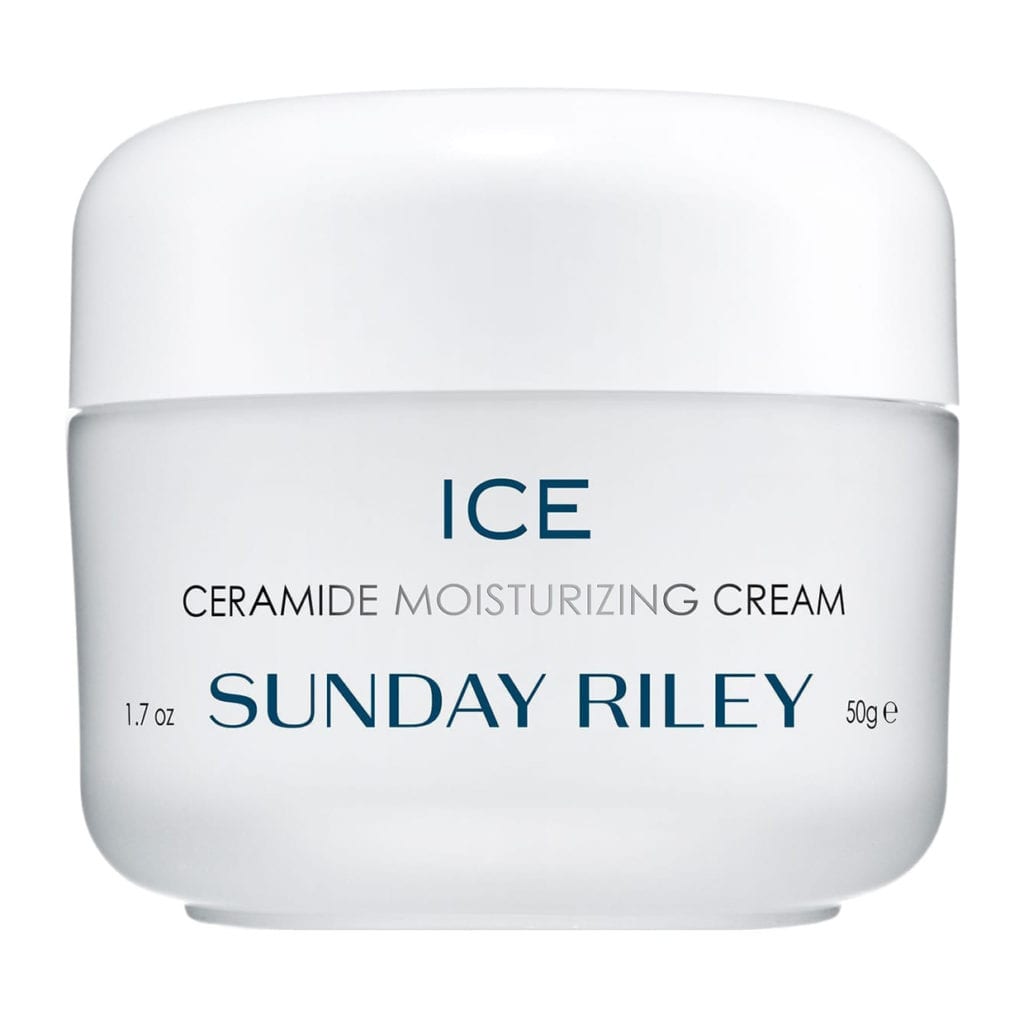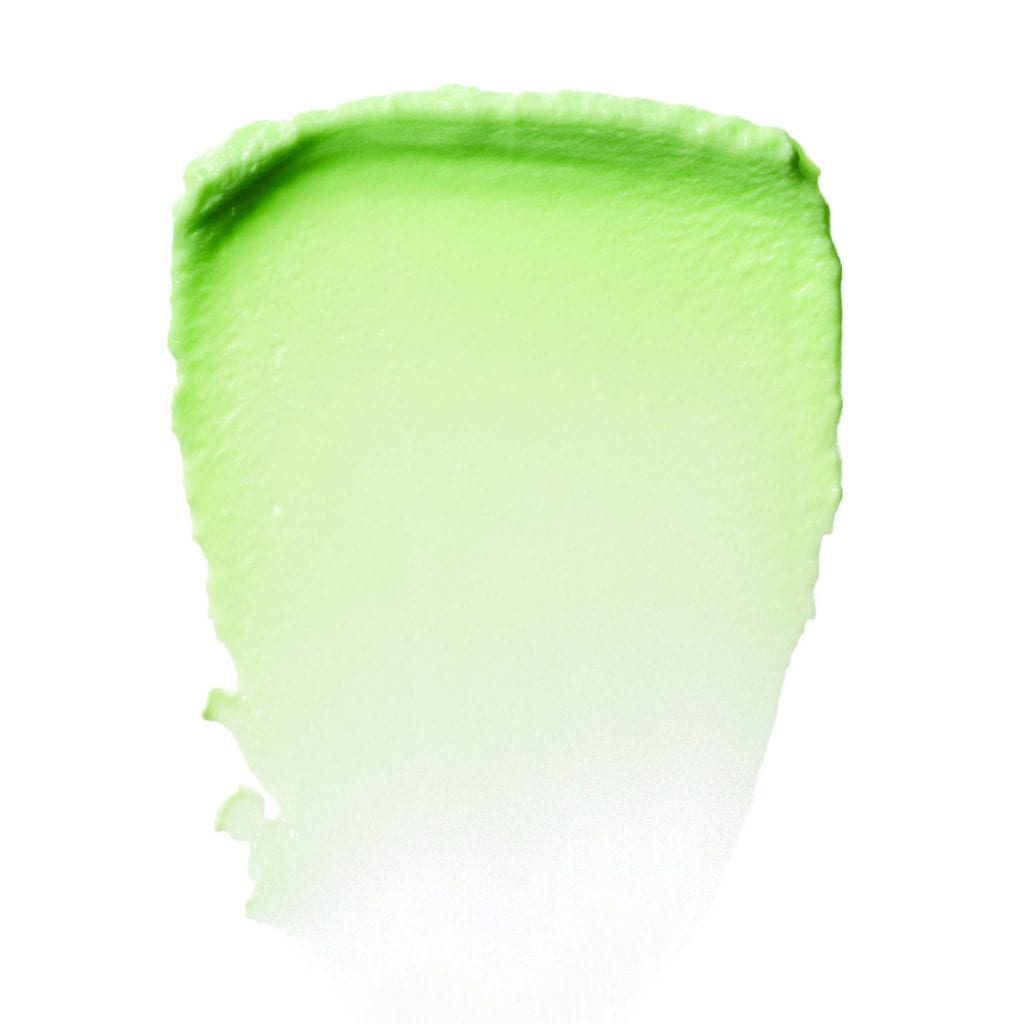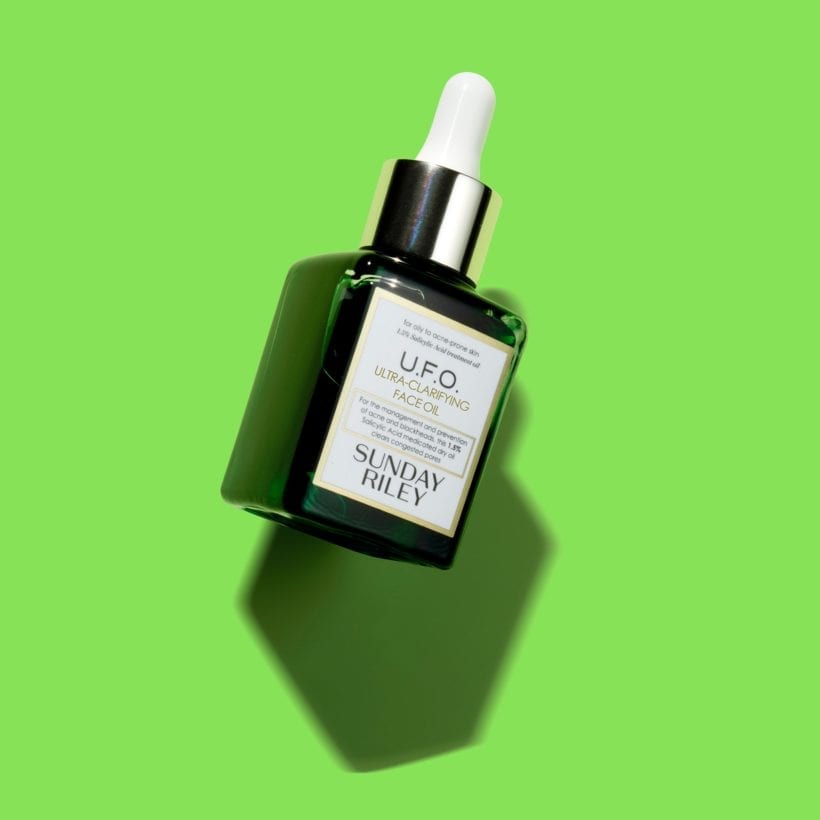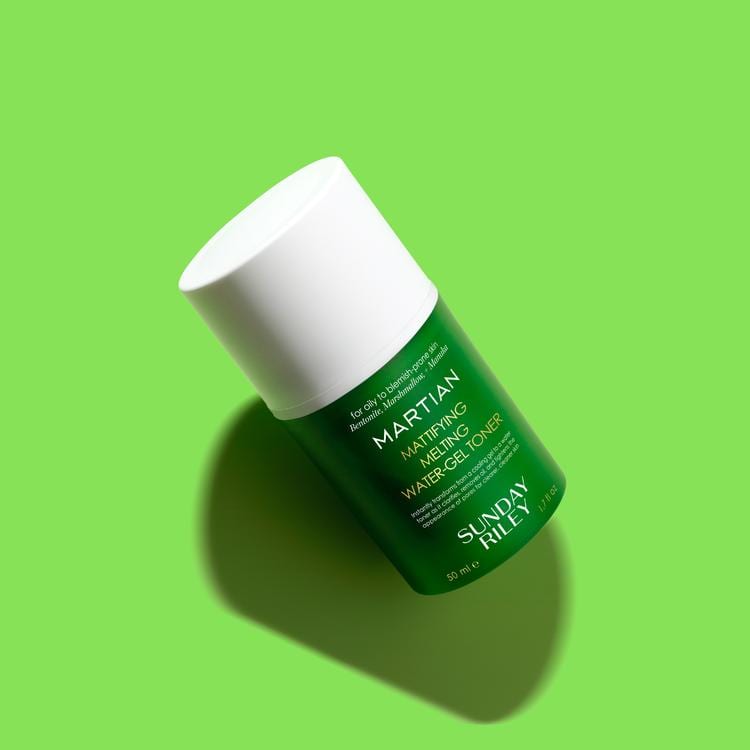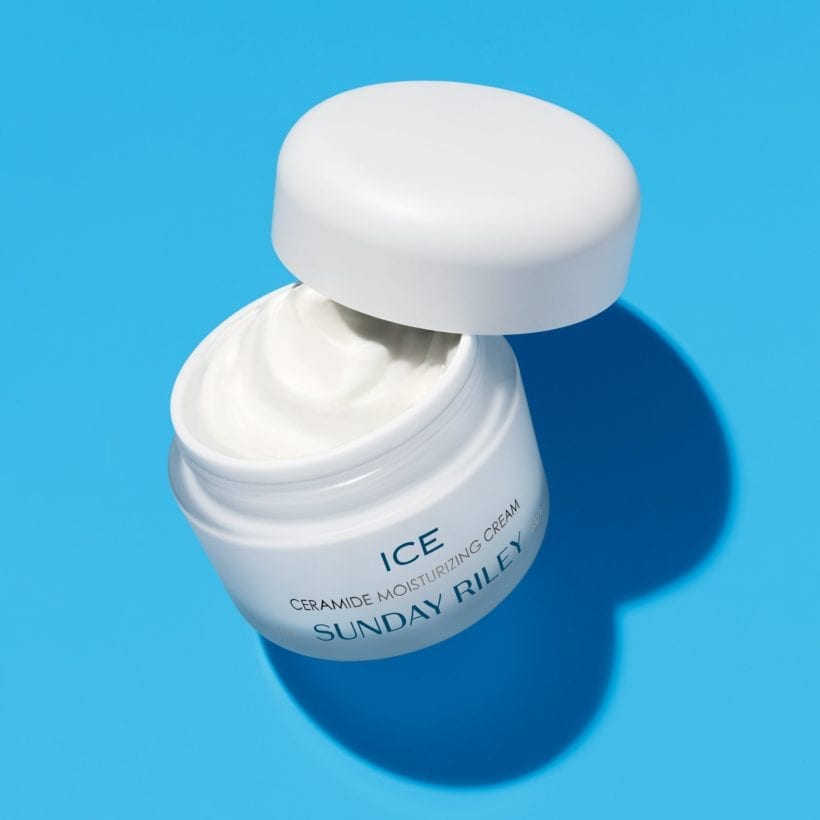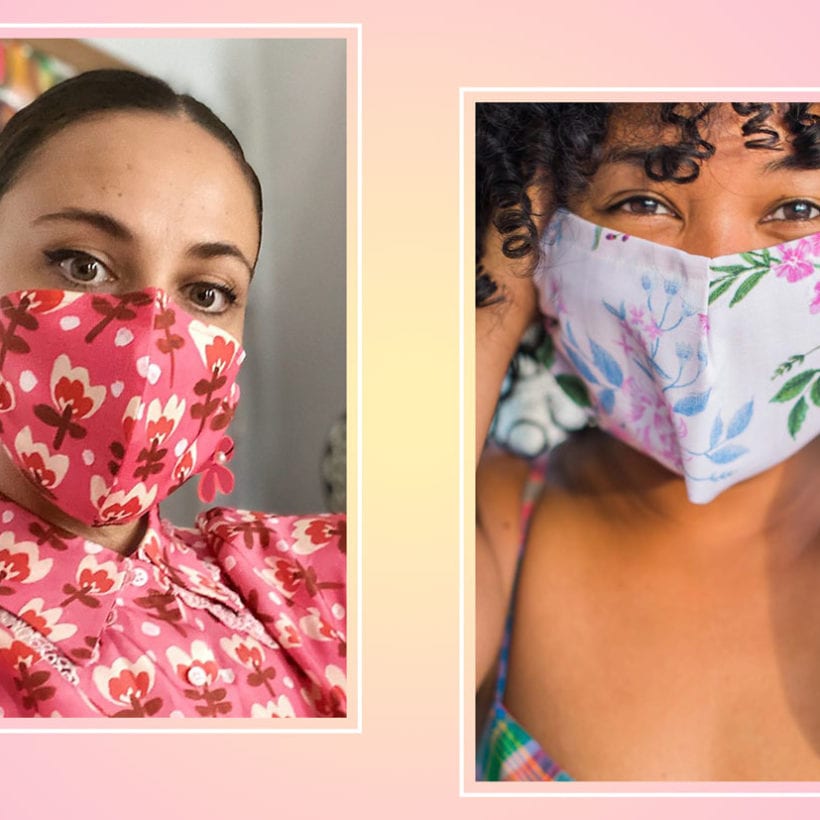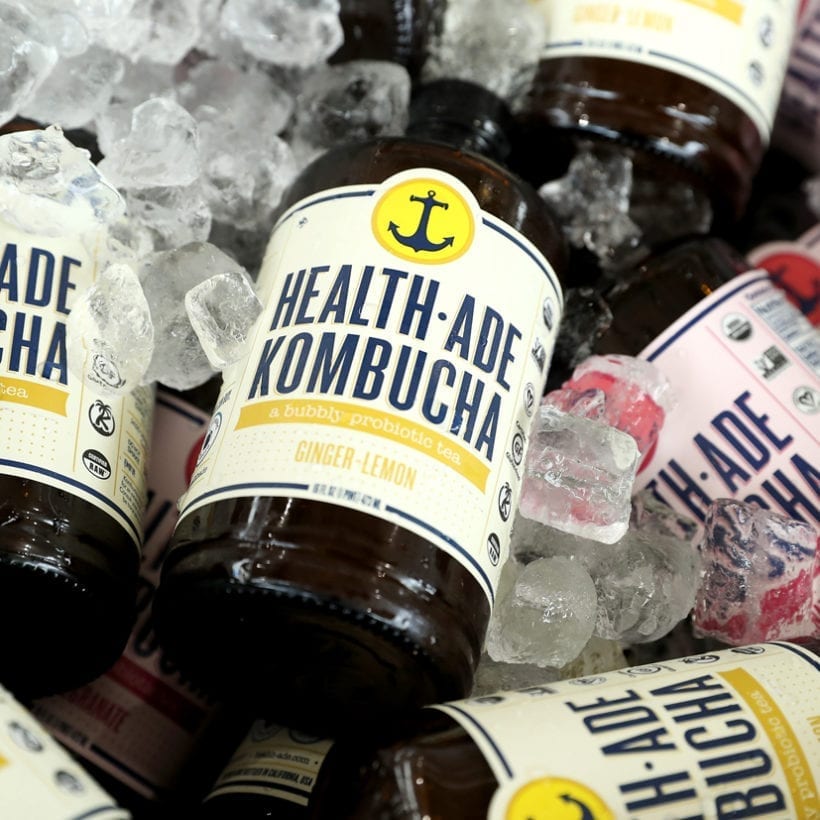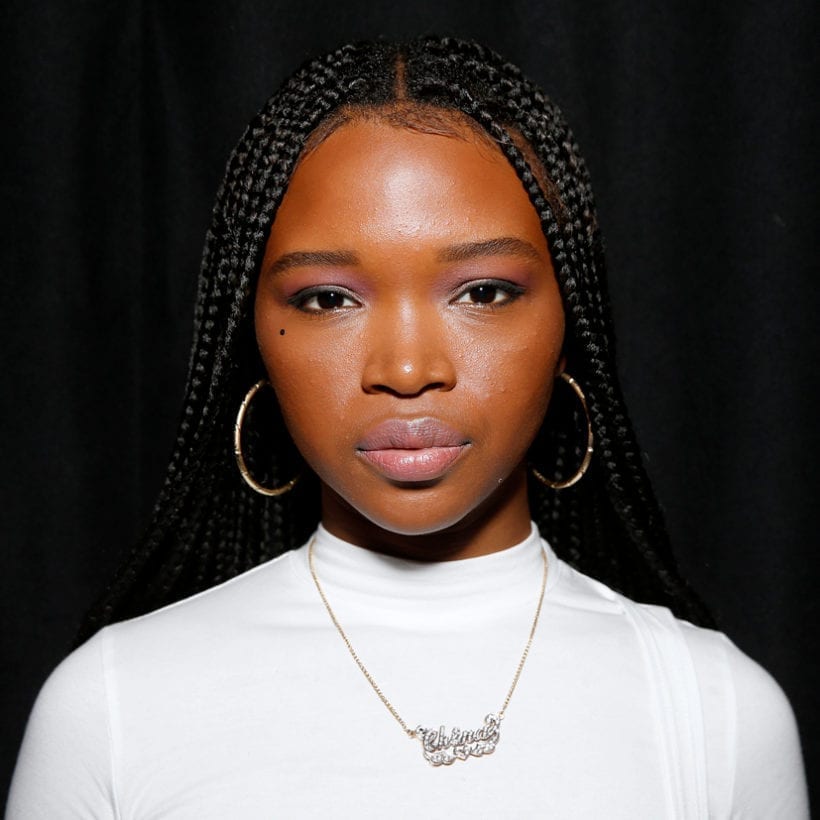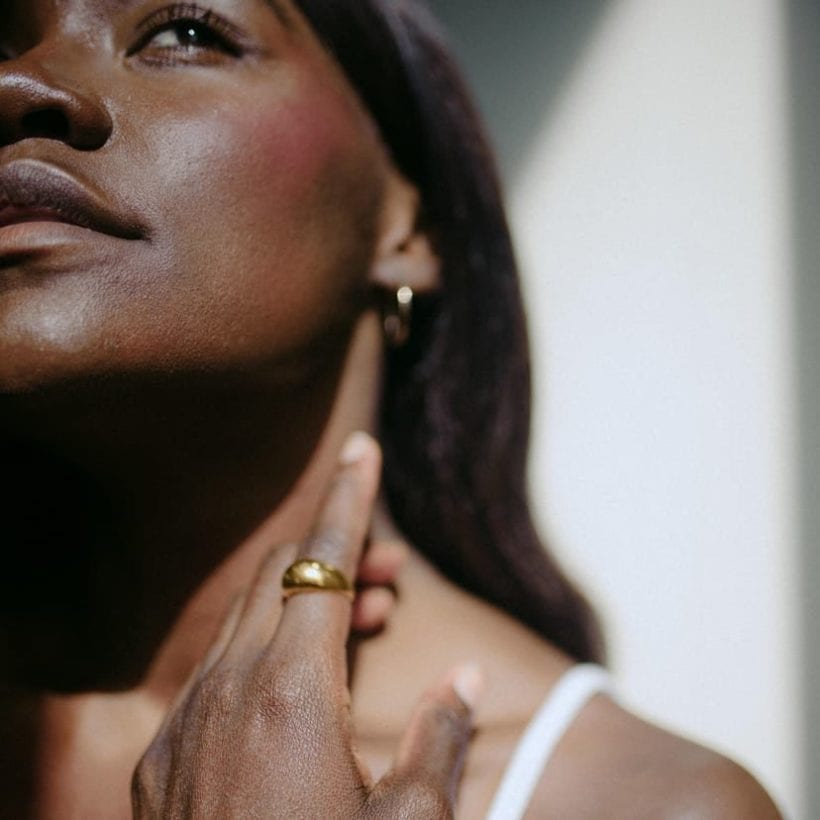Have you been noticing an increase in acne along the lower half of your face lately? If you have been following the CDC’s recommendation to wear a face mask (please, guys, wear your masks), you might be experiencing what dermatologists are now referring to as “maskne.”
“The occlusive nature of a face mask creates warm and humid conditions underneath the mask”, says dermatologist Hadley King, M.D. In fact, the Journal of the American Academy of Dermatology recently published a study about frontline health workers in Hubei, China, which revealed that there had been a 97 percent increase in skin damage from wearing masks (including dry, itchy skin, pimples, tenderness and more).
The location of your acne will be an obvious give away if it’s being caused by your mask: “In the case of maskne, the acne will be limited to the area of the face covered by the mask, unlike typical T-zone or hormonal distributions,” says King. So, if you notice new acne popping up in the place where your mask normally sits, it’s probably maskne. What kind of pimples normally make up maskne? “There may be clogged pores, blackheads, whiteheads, red pimples and pustules,” King says, noting that she “would not expect deep cystic acne lesions.” How quickly maskne develops depends on a lot of factors, including how long the mask was worn and how hot and humid the environment was, says King.
Maskne shouldn’t be confused with oral candida or thrush (which some have coined as “mask mouth”), though the symptoms look similar. Candida may cause angular cheilitis in the corners of the mouth, which can lead to dry, painful, cracked skin. “Candida thrives in warm, humid environments and although a face mask is not likely to be the sole cause of candida overgrowth, it could be a contributing factor. The result can be a red, irritated rash or raw chapped area, or there can be red bumps and pus bumps as well,” says King. Yeast infections like this can happen because there’s an overproduction of bacteria and in many cases, the treatment involves an anti-fungal cream. “Over-the-counter anti-yeast creams like clotrimazole applied twice daily to the affected area may be able to clear this up”, says King. If it doesn’t resolve, see your dermatologist.
How Can I Prevent Maskne?
First, keep your face clean. King recommends washing your face before and after wearing your mask. “A gentle foaming cleanser is adequate, or if your skin is oily or acne-prone, consider one that includes beta-hydroxy acid (BHA) like salicylic acid, which can penetrate pores and gently exfoliate and remove sebum,” she says. BHAs dissolve the bonds that hold dull, dead skin cells on the surface of the skin so the skin will gently shed, revealing smoother, brighter skin underneath.
If you do happen to have any irritation, “wash the area with water and a gentle cleanser,” King advises. If you are not experiencing any irritation, applying a ceramide-based moisturizer in the evening will help strengthen your skin’s moisture barrier to keep it healthy under the mask. Nipping irritation in the bud and maintaining your moisture barrier are the keys to preventing maskne and any potential damage to your skin during these times. Lastly, always remember to wash your cloth masks with fragrance-free detergent to prevent bacteria and dirt from building up on it. Ideally, you’re washing your cloth masks after every use, but at the very least every day.
What to Do If You Get Maskne?
Sometimes even the best prevention will not stop you from getting maskne. Some tweaks to your skincare routine can get you back on track. If you’re already using a BHA, try also incorporating an alpha hydroxy acid (AHA) to help resurface the skin and remove the dead skin cells. It will help brighten your skin’s overall appearance. “AHAs are water-soluble and work on the surface of the skin, BHAs are oil-soluble so they can penetrate into pores so they are able to work on the surface of the skin as well as inside the pore,” says King. They’re safe to use together— just remember to work to your skin’s tolerance.
Additional reporting by Christa Lee
We only recommend products we have independently researched, tested, and loved. If you purchase a product found through our links, Sunday Edit may earn an affiliate commission.
